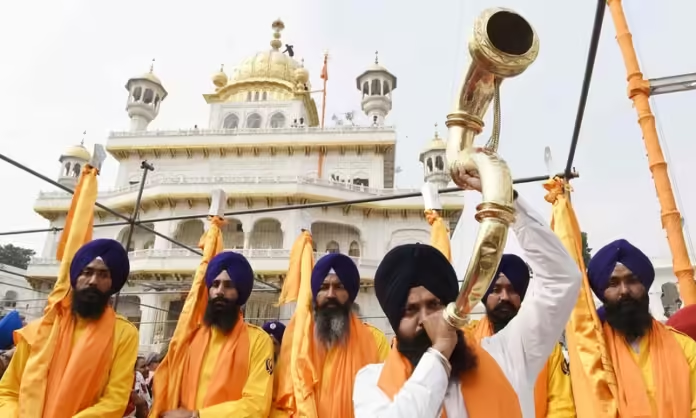Sikhs for Justice Declare leader Gurpatwant Singh Pannu Alliance with Pakistan on Guru Nanak Birth Anniversary
It came as a surprise to many, sending shockwaves throughout the international community, when the head of Sikhs for Justice (SFJ), Gurpatwant Singh Pannu, announced that the Sikh community would stand with Pakistan in case of an Indian attack. The statement came during celebrations marking the birth anniversary of Guru Nanak Dev Ji, the revered founder of Sikhism.
Addressing a large gathering, Pannu’s declaration added another twist to the long-standing political and ideological dynamics between India, Pakistan, and the Khalistani movement. He asserted that Khalistani Sikhs would stand shoulder to shoulder with Pakistan to protect its sovereignty and dignity.
A Message Rooted in Faith and Resistance
The organization, SFJ, said that the stand is rooted in the teachings of Guru Nanak Dev Ji, a proponent of truth and justice, and who resisted persecution and tyranny. The group also remembered that Guru Nanak’s message was above boundaries and religions, as it was for the protection of human rights and dignity.
Pannu underlined that the SFJ’s commitment to justice and equality is in line with the spiritual principles laid down by Guru Nanak. “Guru Nanak stood for truth in the face of tyranny,” Pannu reportedly said. “As his followers, it is our duty to uphold those same values wherever human dignity is threatened.”
Geopolitical Repercussions
This has set off a storm of discussion throughout the political and religious spectrum of South Asia. The Sikhs for Justice organization, which advocates for an independent Khalistan, has long been in conflict with the Indian government. By publicly declaring solidarity with Pakistan, the group has signaled the possibility of a strategic shift in its approach—positioning itself as both a religious and political voice against what it perceives as Indian aggression.
According to political analysts, this move by the SFJ may heighten the tensions between India and Pakistan, as Sikh sentiments have traditionally been very sensitive between the two countries. Pakistan, with the sacred Gurdwara Kartarpur Sahib, holds a special place in Sikhs’ spirituality and further deepens the symbolic meaning of this statement.
Guru Nanak’s Legacy in Modern Times
Guru Nanak’s birth anniversary, celebrated the world over as Gurpurab, is an occasion when his everlasting message of equality, compassion, and truth resonates afresh. On this day, Sikhs for Justice made an appeal toward reminding the global Sikh community of the moral duty to stand against oppression and injustice.
Drawing an analogy between Guru Nanak’s spiritual resistance against Mughal tyranny and their own, the group presents itself as a movement of resistance against what they term political and religious suppression in India. By invoking the saint’s teachings, the SFJ has framed its political position as the continuation of a moral and historical struggle for justice.
A Call for Solidarity
Many people have characterized the SFJ declaration as one that is provocative yet bold. Proponents see this as a reaffirmation of key tenets in Sikh ideology, while others are quick to suggest it may further complicate regional relations. Whatever the case, one thing is for sure: Sikhs for Justice have reignited discussions about identity, sovereignty, and faith in one of the most volatile regions in the world.
While tensions between India and Pakistan remain low, the SFJ statement is a reminder of how, more often than not, religious sentiment and political allegiance converge in powerful ways. On a day meant to underscore peace and unity, this declaration has instead underlined something very different: the enduring resonance of Guru Nanak’s message of truth and justice. A message that even after centuries has kept its appeal for those resisting oppression.
Follow Pakistan Updates for updates and insight into regional politics, religious movements, and cross-border affairs.




